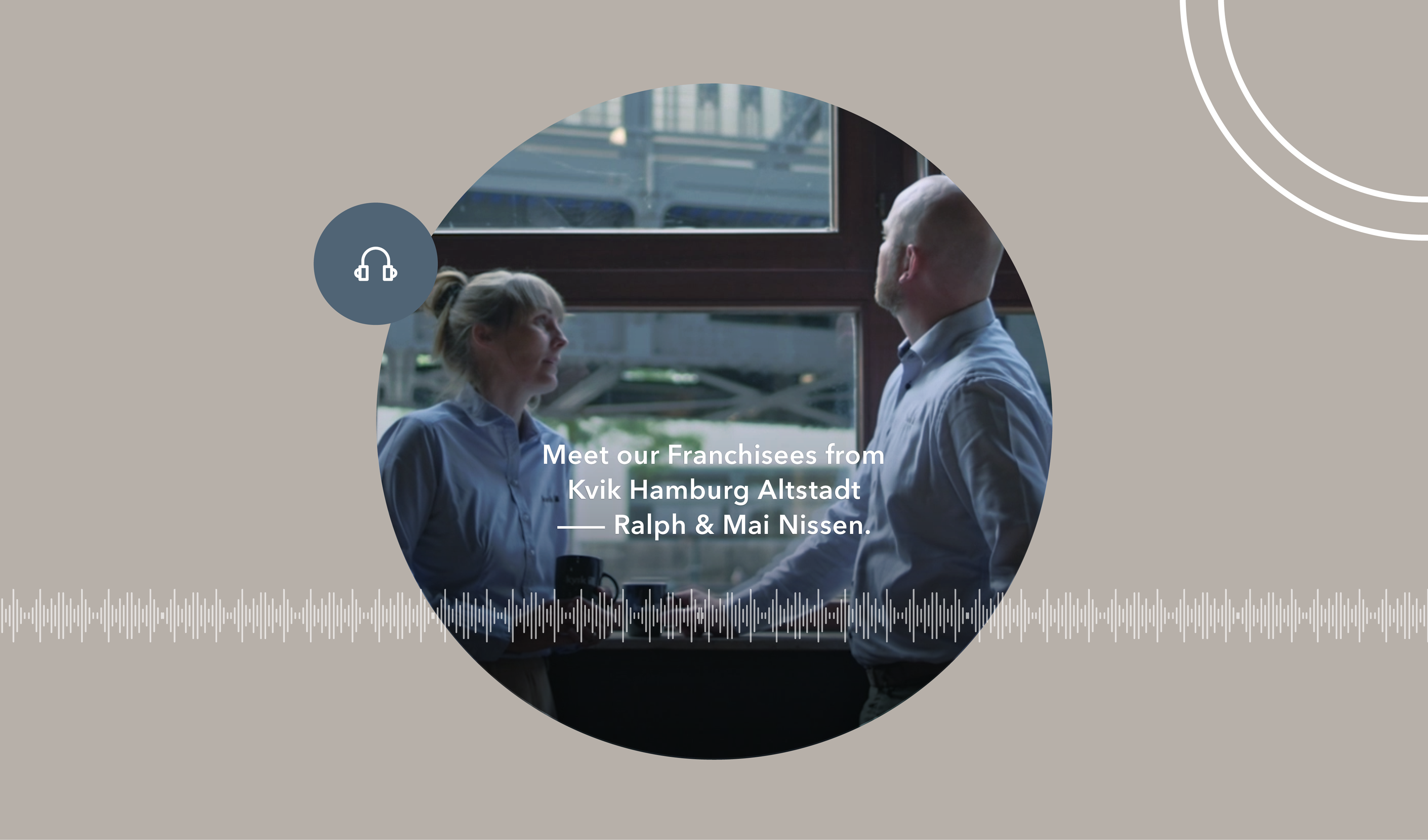Julie: 320 kitchens sounds like a lot in one year. It seems like a Kvik franchise was really the right choice for Ralph and Mai. We asked them about that moment when they knew that it was right for them.
Mai: I remember that Ralph was sitting and looking at his phone and he said to me, Mai, could you please come here and take a look at this? This is Kvik and they are looking for franchisees, for Germany and not only Germany for Hamburg and in the area where we are going to live again. So could that be something? And I was like, yes.
I think Ralph and I are really, what do you say when we have the right feeling? That was the moment where I said I have a really good feeling about it without knowing a lot about it. But the feeling was there and there we were looking at the the homepage and reading about Kvik.
Julie: And it was it was a post you saw on LinkedIn or was it an ad on LinkedIn?
Ralph: It was actually Jens-Peter who was posting something because I was connected with him at that time already due to some other reason.
And and yeah, I saw he was looking for that. It was a little bit, you know, we and we actually it was the timing was actually quite crazy is the wrong word but you know. We were just.
Julie: It was perfect for you?
Ralph: It was perfect, but also due to at we were still sitting in in our old business and everything going on there and that was not particularly nice, I might say. But we also look very much forward and we don't look back and we want and you know we had it was quite strange because we had the same feeling that this was some kind of destiny thing.
Julie: I'm not sure how many franchisees we get by the person directly writing to the CEO. But maybe it's more than I think, right?
Ralph: No, that was, I said, OK, why not? And he was the one who was posting it. So that was the reason why I didn't go the the the classical, normal way.
Julie: That's pretty cool. What does it hurt? I have to jump in again to note that the JP Ralph is referring to is our CEO Jens-Peter Poulson. So Ralph and Mai went straight to the top.
Ralph: Yeah. I just I just wrote JP just right away on LinkedIn just telling a little bit of our story and who we are, where we're from and and actually the the funny thing was that I could immediately see that it was actually texting me back.
Julie: He was probably like hallelujah!
Ralph: Yeah, yeah, exactly. He wrote back, "can I call you tomorrow?" And then one week later we were sitting in Vildbjerg, near Herning in Denmark. So it went that fast. So I think we found each other in in that way.
Mai: And then we also just knew it was meant to be.
